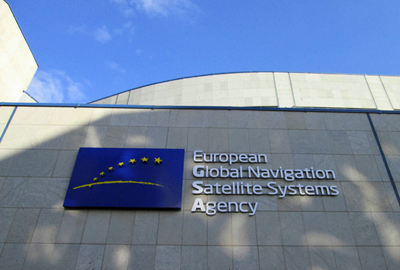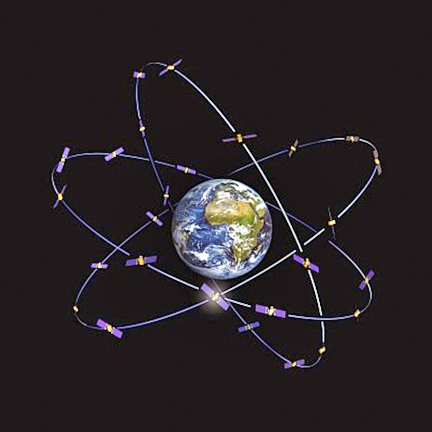
July 1, 2017, was an important date for the European GNSS Agency (GSA) and for the Galileo program.
Following a six-month handover phase that started on January 1, as of July 1 the GSA officially takes responsibility for overseeing the operations and service provision for Galileo. This responsibility includes ensuring a return on investment from Galileo in the form of across-the-board services and applications.
This journey began three years ago when the European Commission (EC) issued Regulation 1285 stating that the Galileo exploitation phase was to start in 2016 and delegating the responsibility for overseeing this key phase to the GSA. Last year’s Declaration of Initial Services and the awarding of the Galileo Service Operator (GSOp) contract marked the official transition of Galileo from a testing phase to a system in service and were the first concrete steps taken by the GSA in the organization's new role.

Artistic rendition of the Galileo constellation.
Overseeing the Galileo service provision is no simple task and requires the GSA to wear multiple hats. For example, the GSA's responsibilities include overseeing the operation of such key service facilities as the Galileo Security Monitoring Centre (GSMC) in France and the UK, the European GNSS Service Centre (GSC) in Spain and the Galileo Reference Centre (GRC) in the Netherlands. The organization is also charged with maximizing Galileo adoption across user market segments, including positioning Galileo as the leading constellation in search and rescue beacons and making the Public Regulated Service (PRS) the service of choice for all authorized users.
In parallel with the development of the service provision, additional satellites will continue to be added to the Galileo constellation, allowing new services to become available — herein lies one of the key challenges to face, namely, the need to balance the development of the Galileo service provision with the need for continued program deployment.
The end goal of all this work is to ensure that Galileo is positioned as the second GNSS constellation of choice (after GPS) by the time the system reaches full operational capability from 2020. The GSA is well positioned to oversee the ongoing investment in the research, technology and applications needed to achieve this goal.
In preparing for this new role, the GSA has leaned heavily on the organization's strong track record and experience from work with EGNOS, where GSA has been responsible for the program’s service provision since 2014. A thorough internal assessment has been completed with a ramp up of internal competence levels, all in preparation for that July 1, 2017, date — the day the GSA began to put into practice everything that the organization has been working toward to usher in a new era for the Galileo program.
This feat was accomplished with the help and support of colleagues at the EC and the European Space Agency (ESA). ESA will remain in charge of the system activities and the deployment of the ground and space segments while working closely with GSA for service provision. GSA is also integrating senior ESA expertise, bringing in their knowledge of the system and operations, to ensure that high quality services are delivered to users.

